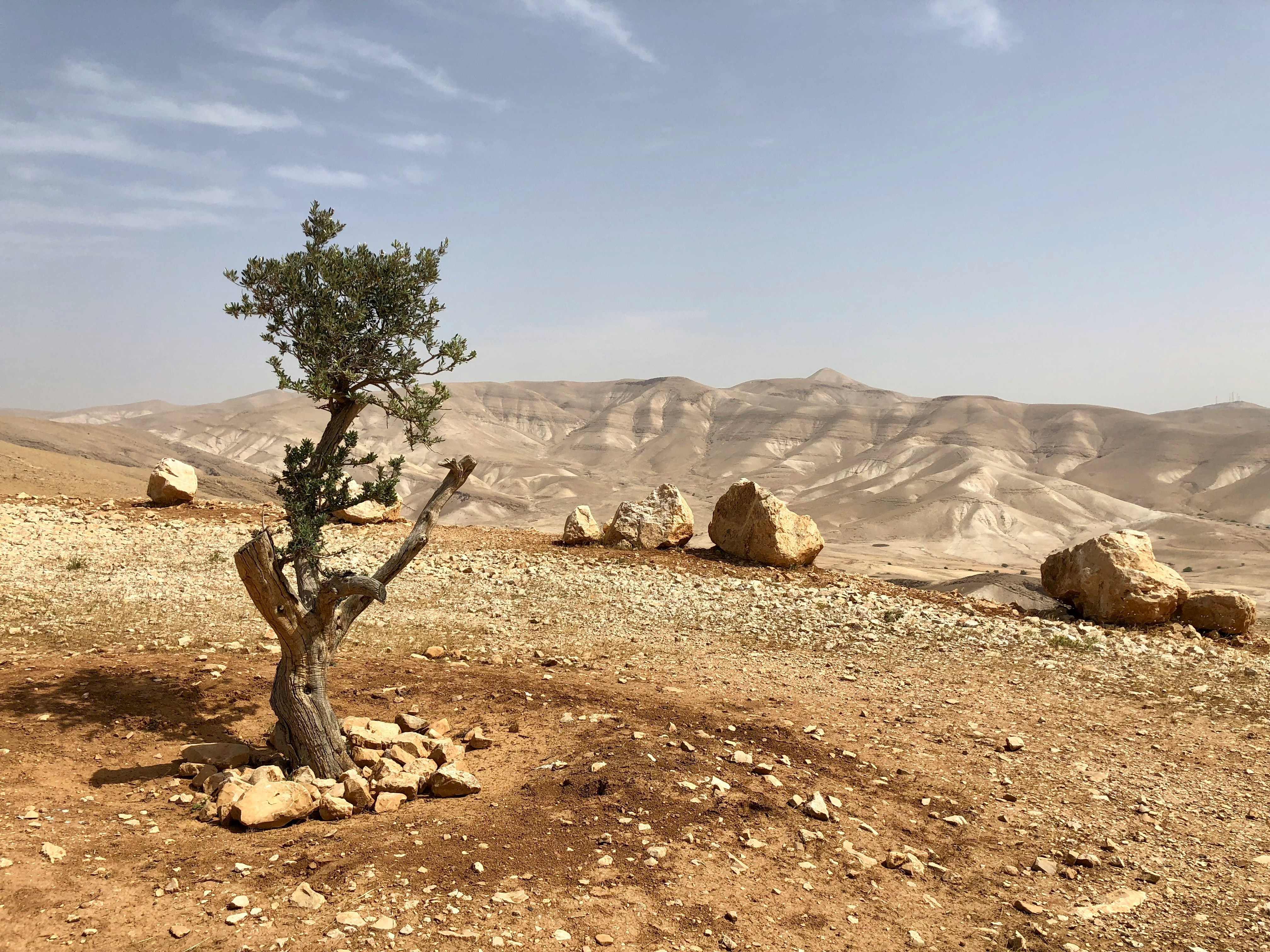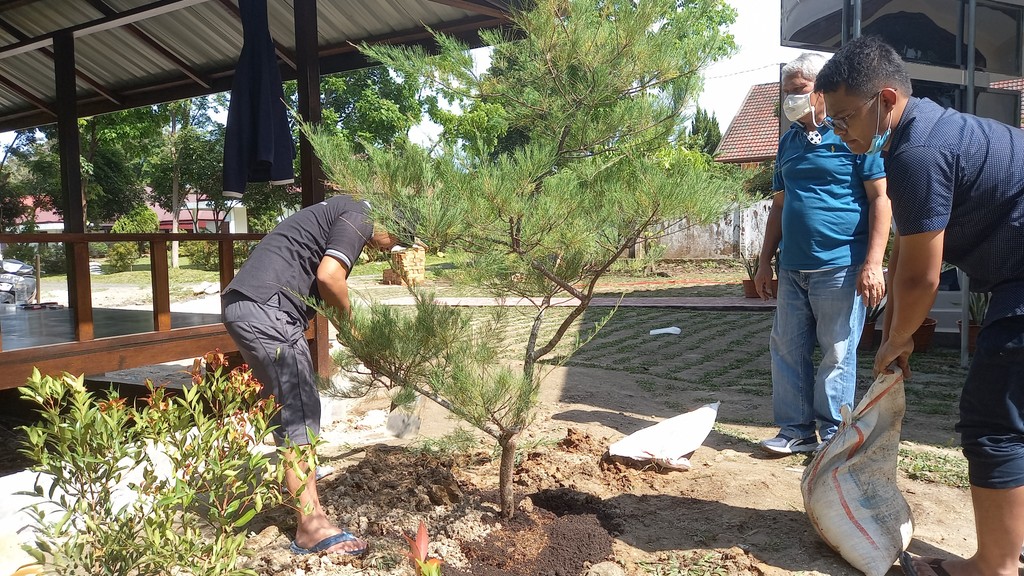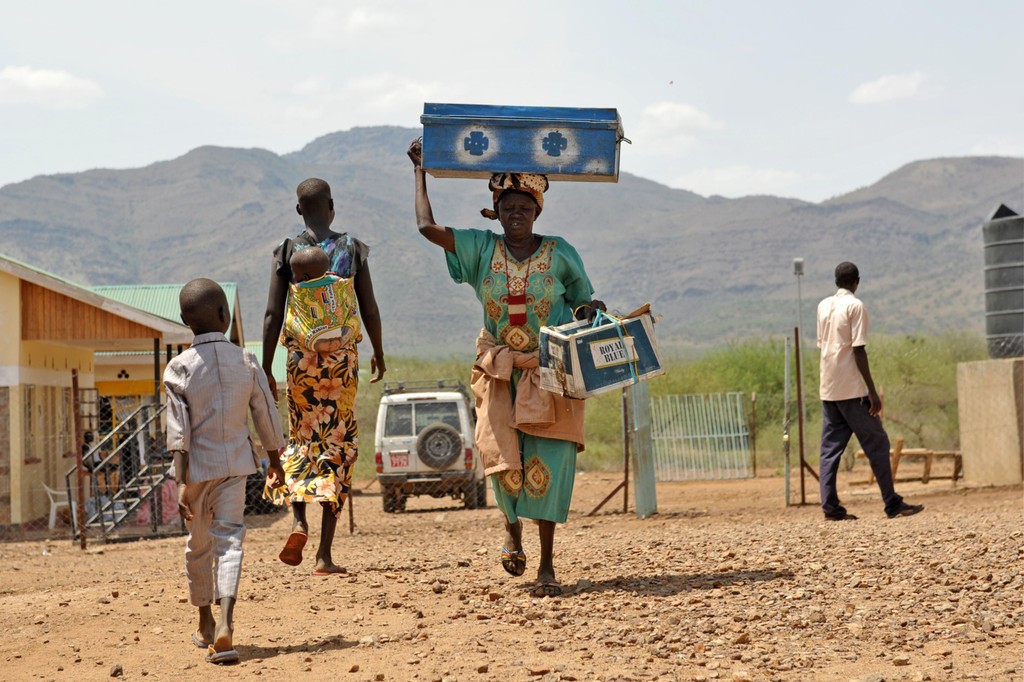Compilation of Climate Justice Advocacy
Good Practices of Local to Global Action

Overview
PROJECT DURATION
January 2021 to April 2021
BUDGET AND FUNDING
EUR 1,914, The Lutheran World Federation
IMPLEMENTATION
The Environmental and Education Center of the Evangelical Lutheran Church of Jordan and the Holy Land
SNAPSHOT
The Palestinian Youth Climate Justice Initiative was designed to address adaptation, mitigation, and climate justice advocacy. The project has been coherently designed within the context of military occupation and climate-related hazards. Palestinians deal with significant amounts of solid waste, water pollution, and reliance on locally grown agriculture. Therefore, education and responsibility were a major focus of these issues, coupled with an olive tree planting campaign, which provided a hands-on commitment service to preserve and restore the ecosystem and provide livelihoods, thereby raising hope.
The Palestinian Youth Climate Justice Initiative is a comprehensive program that combines training, workshops utilizing Information Technology (IT), and tangible actions like tree planting and recycling.
It focused on cultivating a cohort of resilient, skilled, and environmentally conscious youth in Palestine, recognizing that the paramount environmental justice work lies ahead and will likely fall into the hands of the next generation. IT formed part of the Environmental Leaders Program, “which has been instrumental in providing students with a unique opportunity to comprehend both local and global environmental challenges. It serves as a platform to raise awareness about climate change issues and fosters a sense of responsibility toward protecting biodiversity.
The program goes beyond education, affording students the chance to engage with decision-makers, honing their skills in lobbying and advocating for environmental causes. By empowering the youth through this comprehensive approach, the Environmental Leaders Program aims to create a new generation of environmentally conscious leaders who actively contribute to a greener and more sustainable future.”
The project emphasized a hands-on approach to environmental education, exemplified by the Olive Tree Planting Campaign and an Environmental Action Competition. The inclusion of these action-oriented components was crucial in imparting practical skills to care for the earth while instilling a sense of achievement, teamwork, and community cohesion among the youth.
Context
The environmental situation in Palestine is inseparable from its current military occupation. Like many countries, Palestinians deal with significant amounts of solid waste, water pollution, and reliance on locally grown agriculture.
Furthermore, Palestine frequently faces challenges due to access, resources, and the absence of peace required for effective environmental restoration and conservation efforts.
Litter is a significant problem, often impeding agricultural work, disrupting, or destroying habitats, and endangering wildlife. Citizen education and responsibility play a key role in addressing the issue, but it is complicated by the increasing lack of landfill space allotted to the West Bank.
Palestinians have limited access to landfills, making solid waste management a critical issue for maintaining the quality of life in this context.
The issue of water in Palestine is exceedingly complex. The region is abundant in streams and springs that farmers rely on, along with regular rainfall, to support successful agriculture. Maintaining clean water is of utmost importance for the well-being of citizens and the preservation of biodiversity.
Perhaps the most significant water-related challenge in Palestine is the issue of access. The control of all water resources by Israeli occupation forces has resulted in a disproportionate allocation of water, with higher proportions directed toward new Israeli settlements with smaller populations.
Consequently, Palestinians, who previously had complete access to water in their homes, often face scarcity. This not only infringes upon the human rights of the Palestinian people but also hinders agricultural success.
Moreover, the frequent diversion of substantial water volumes from natural sources leaves previously thriving areas with depleted water resources, transforming once flourishing habitats into arid and barren landscapes. This destructive consequence negatively impacts the habitat and sustenance of many native Palestinian wildlife species.
Furthermore, the livelihood of most Palestinians depends on agriculture. A significant number of families rely specifically on the olive harvest to sustain themselves through the winters.
Olive trees hold ecological importance as well, given their substantial oxygen output compared to other tree species, and their role in providing essential soil restoration and habitat for various species.
Regrettably, continuous land loss has resulted in many farmers possessing only a portion, if any, of their land today. The construction of the occupation wall further exacerbated the situation by dividing the land of some farmers, rendering the other half of their livelihood physically inaccessible to them. Consequently, planting olive trees serves not only as an environmental act but also to provide livelihoods and foster hope.
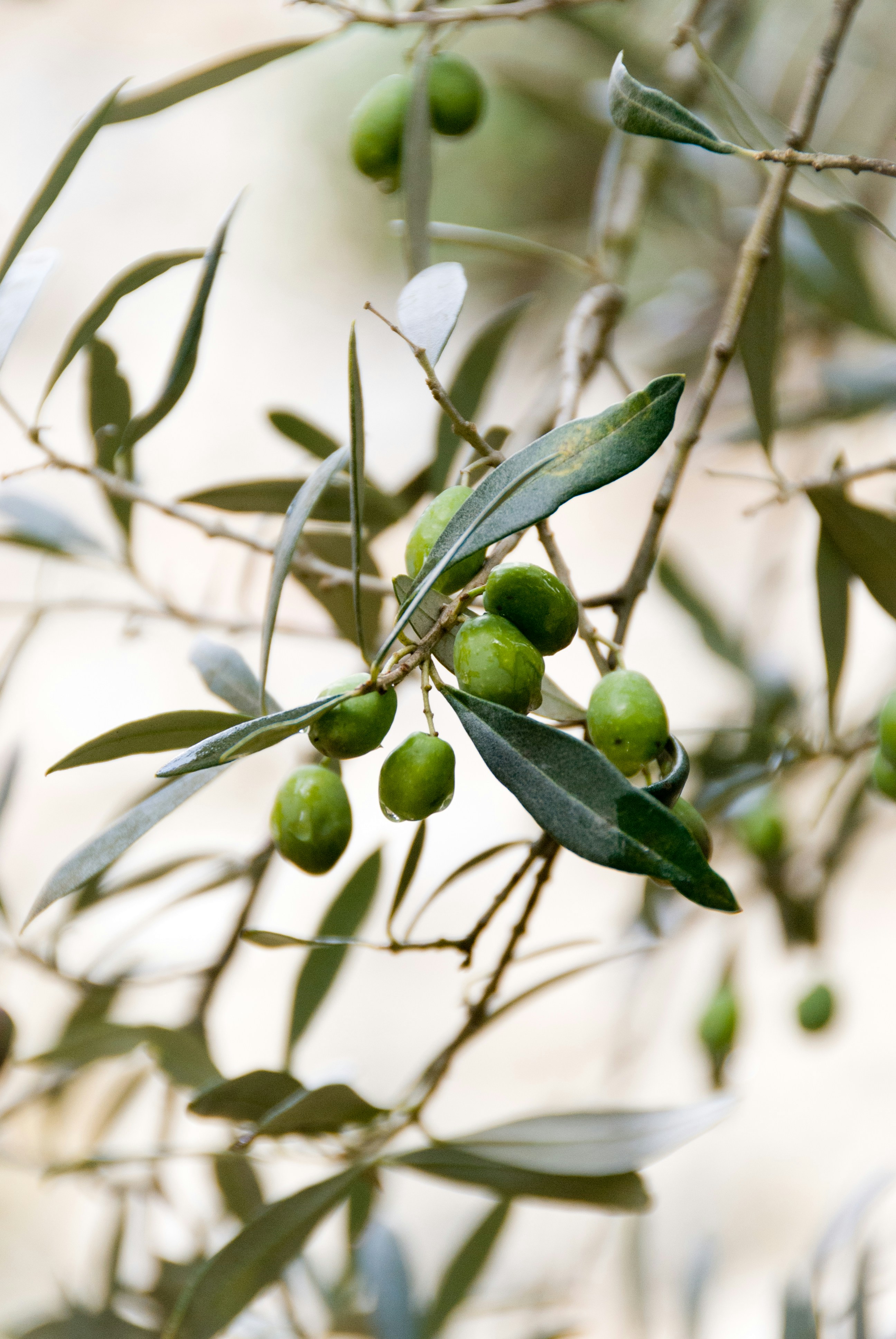
Strategies
Community education, sensitization and capacity-strengthening for adaptation and resilience
The EEC organized Biodiversity in Palestine workshops in eight different schools, through which 149 students were educated about native species of birds, mammals, plants, invertebrates, algae, and microorganisms.
These workshops have been continued outside of this project to further impact schools under the EEC’s Environmental Awareness Within the Palestinian Identity. Through presentations and discussions, students learned about the importance of biodiversity in Palestine and the threats it faces, including the impact of occupation violations and the apartheid wall.
The workshops encouraged student engagement through essay writing on endangered species and brainstorming sessions for eliminating threats to biodiversity.
The competition called Documentation of Biodiversity in Palestine further empowered students to explore and document their country’s biodiversity, fostering a personal connection to the environment and inspiring environmental stewardship and advocacy among participants.
Furthermore, in March 2021, the EEC organized climate change workshops via virtual platforms that educated 129 students about the atmosphere, greenhouse gases, and global warming impacts.
The workshops included discussions on school-based activism for climate change mitigation, emphasizing planting campaigns, recycling, waste management, and green transportation.
Students also learned about the role of plants, especially olive trees, in transforming carbon dioxide into oxygen, thus mitigating harmful human emissions. The workshops aimed to equip students with the knowledge and tools to actively participate in climate change mitigation efforts within their schools and communities.
As a result of the recycling and waste management workshops, two schools out of six successfully implemented a plastic reduction initiative, focusing on both adaptation and mitigation of climate change impacts.
These schools transitioned away from using single-use plastic containers for water and food, opting for B5, a reusable and sustainable material made from hard plastic and steel. Furthermore, starting from the first and fourth grades, other schools followed suit, adopting the plastic reduction initiative.
This collective effort has resulted in a significant reduction in plastic waste generation, leading to a positive impact on the environment. This project not only helped in adapting to a more sustainable approach but also contributed to mitigating the negative effects of plastic pollution on the environment.
Biodiversity conservation and restoration of ecosystems
The EEC organized eight olive tree planting campaigns in targeted schools during March and April 2021, aiming to contribute to climate change mitigation and foster volunteerism among 137 students. Led by Environment Education Centre staff, students learned proper tree-planting techniques while experiencing the joy and excitement of working together toward environmental conservation.
The campaign focused on planting olive trees and highlighting their importance to Palestinian identity and the economic well-being of farmers. The hands-on initiative encouraged students’ involvement in environmental projects, further strengthening their connection to the environment and promoting climate change mitigation through community engagement.
Advocacy and visibility
The Documentation of Biodiversity in Palestine competition, held in January 2021, was developed to directly advocate for student involvement in discovering and documenting Palestine’s unique biodiversity. Participants from eight schools were assigned photographs of native animals and tasked to research their designated species, identifying basic facts, environmental threats, estimated population, and endangered status.
The initiative specifically empowered the students to explore Palestine’s biodiversity during hikes and connect personally with their environment. The competition promoted environmental advocacy and stewardship directly among the students as they worked to produce their reports. It also encouraged thoughtful engagement, in contrast with typical classroom teaching methods, where students had the freedom and flexibility to produce their reports.
The winners were further incentivized through prizes, to support further environmental projects in their schools, such as funding plant nursery seeds and environmental club activities including the “Healthy Nutrition” workshop at Dar Al Kalima for first place. Second- and third-place schools Beit Jala Secondary School and the School of Hope respectively, opted to invest in plants, flowers, soil, and plant pots that were installed around their schools.
Solid network
The project engaged with key government and leadership figures in environmental matters. They held discussions with influential individuals such as Jameel Mtour, head of the Palestinian Environmental Quality Authority, providing an opportunity for youth to express their concerns and interact with leaders in the country’s environmental program.
These interactions aimed to inspire and empower youth to act and have a lasting effect on their commitment to environmental causes. Additionally, the project collaborated with Riad Attari from the Ministry of Agriculture to address the importance of tree planting in combating desertification.
The emphasis on government and leadership engagement highlights the significance of involving decision-makers in driving positive change for climate and environmental protection.
Local to Global To Local
At the local level, the project focused on early intervention, engaging with children to address climate issues proactively. By empowering young minds, they will foster a sense of responsibility and care for the environment from an early age.
Simultaneously, it extended its impact to global platforms, actively participating youth in the “youth4climate” conference pre-COP26 in Milan, Italy, and contributing to international climate discussions, providing participants valuable insights into both country-specific and global climate challenges and solutions.
These interactions aimed to inspire and empower youth to act and have a lasting effect on their commitment to environmental causes. Additionally, the project collaborated with Riad Attari from the Ministry of Agriculture to address the importance of tree planting in combating desertification.
“We took the initiative to include a youth representative in Conference of the Parties Italy, giving them the chance to interact with global leaders and share their personal experiences related to climate change.” (Simon Awad, Executive Director of the Environment Education Centre)
With a combination of local engagement, global participation, and ecological justice principles, the EEC engaged in a L2G2L approach to equip communities with the tools and knowledge required to adapt and mitigate climate challenges effectively.
Through their efforts, the project has fostered a sense of environmental responsibility, reduced negative environmental impacts, and contributed to a sustainable future.
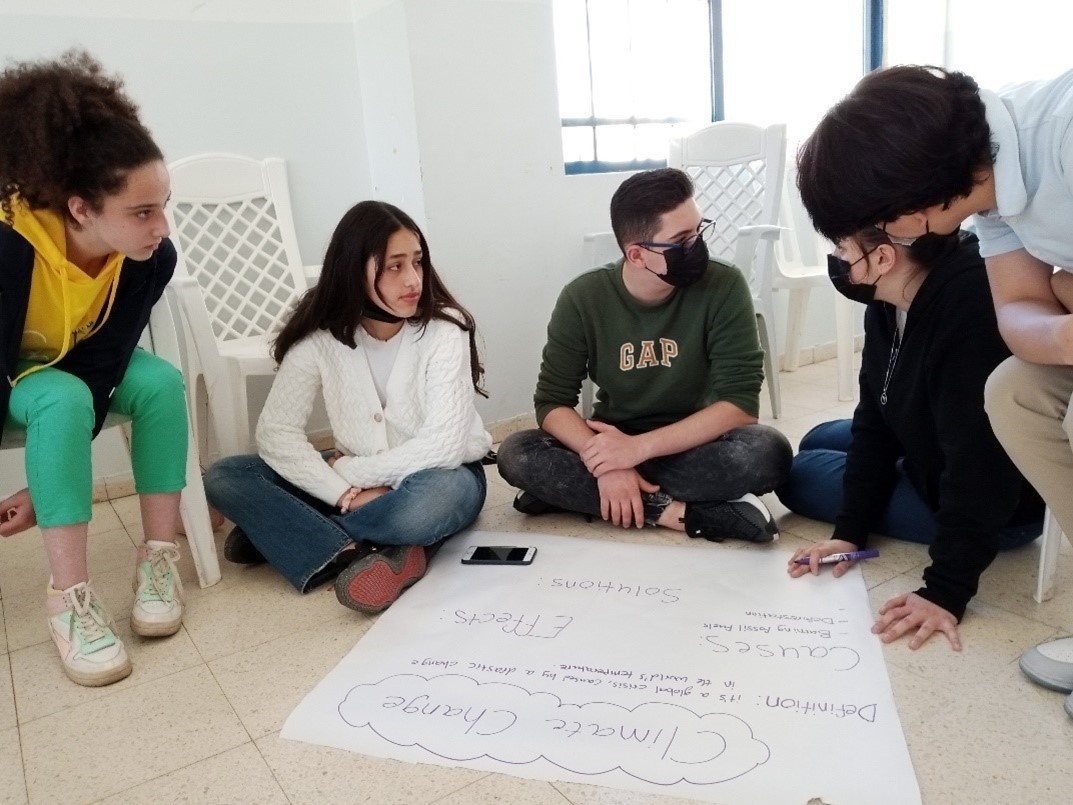
Target Group
The project engaged 240 Palestinian children, aged 13–14 years old (8th grade), comprising 60% female students and 40% male students. Students were selected from partner schools all over the West Bank, including the Evangelical Lutheran School in Beit Sahour, Dar Al-Kalima School in Bethlehem, the Evangelical School of Hope in Ramallah, Talitha Kumi School in Beit Jala, the Greek Catholic Patriarchate School, Al-Mustaqbal School in Ramallah, Beit Jala Secondary School for Girls, and Beit Jala Cooperated Basic School.

Impact
1.
It has influenced students to adopt healthier food habits, promoting a shift toward a more sustainable and environmentally friendly lifestyle.
2.
Cleanup campaigns conducted in schools and surrounding areas have resulted in a cleaner and more environmentally conscious community.
3.
The project has successfully reduced plastic use in two schools, implementing eco-friendly alternatives such as reusable materials.
4.
The project has been instrumental in building leadership skills through a continued education system, not only among students buy also within their communities.
5.
Activities within classes and communities have fostered a sense of responsibility and awareness of environmental issues, encouraging active participation in advocating for green causes.

Replicability
Offering leadership training across different areas proved crucial in navigating movement restrictions between occupied territories, strikes, and area closures. Focusing on leadership skills facilitated effective planning and adaptation to changing circumstances.
“The ongoing COVID-19 pandemic required innovative solutions to continue program activities. Embracing online formats and social media communication helped overcome some of the limitations imposed by school closures and movement restrictions.” (Simon Awad, Executive Director of the Environment Education Centre)
Ensuring equal access to online communication and workshops posed a challenge, especially for students with limited internet connectivity, notably those in refugee camps. Inclusivity and exploring alternative engagement methods are vital for reaching all participants, transcending potential connectivity disparities and ensuring meaningful involvement for all.


